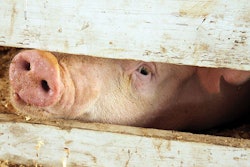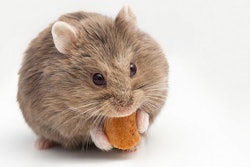
Dog demographics played a role in canine kibble preference, as did the season, in a study published in the journal Animals. Scientists found that weight and breed influenced kibble preference in tests conducted over ten years, from 2007 to 2017. The hot season also influenced dogs’ intake, even of preferred diets. The researchers considered dog’s age, breed, sex and body weight in terms of how they related to differences in preference between two palatable kibble choices.
Kibble physical characteristics and dog preference
Kibble moisture content had a positive effect on preference. Fiber content had the opposite effect, reducing kibble preference. The researchers noted that this corresponds to earlier findings in domestic and wild canines.
“The content of less digestible fractions like crude fiber and dry matter negatively affected dogs’ food preferences,” wrote the researchers.
Kibble preference by dog breed
The researchers conducted a total of 1,771 preference tests with dogs in a kennel. The dogs numbered 34 with 27 males and 7 females.
Beagle, Labrador and Boxer were the most common breeds in the kennel, particularly Beagles (70.5%). The dogs ages ranged from one to 15 years.
Dogs’ age, weight and breed may change the animals’ feeding behavior for palatable foods, wrote the researchers. Differences in the detection, metabolism or learning of nutritive food cues likely explain the variability.
Over the ten years observed by the study, dogs’ weight and breed influenced dogs’ intake of their most preferred diets. The heaviest dogs showed lower intakes. As for breed, Beagles had lower intakes of preferred diets in comparison to both Boxer and Labrador Retrievers.
Seasons also influences dogs’ food intakes, with the hot season resulting in decreased intake of preferred dog diets.
Age and sex did not affect dogs’ preference or intake of the kibble
“These variables need to be considered when designing feeding behavior trials to improve the nutritional and hedonic quality of commercial diets in dogs according to the physiological characteristics of animals,” wrote researchers at the University of Chile who conducted the study. They did not respond to an interview request.

















